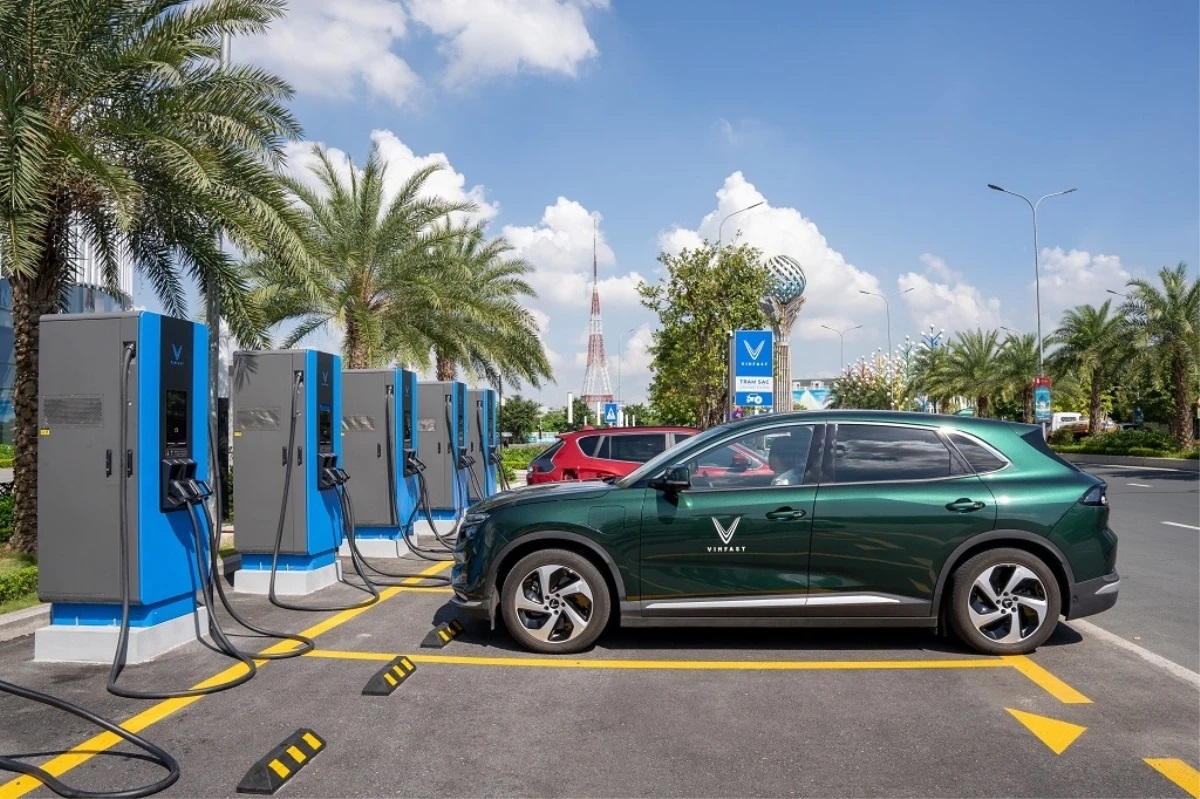ID :
658709
Wed, 05/03/2023 - 04:26
Auther :
Shortlink :
https://www.oananews.org//node/658709
The shortlink copeid
Vietnam plugs in to promising EV auto sector

Hanoi, May 3 (VNA) – In the current context of worsening air pollution, electric vehicles (EVs) are becoming an inevitable trend in the global automobile industry, and Vietnam is no exception. In particular, Vietnam is considered a high-potential market for electric cars in the near future.
However, to tap into this market, experts suggested a specific roadmap and development policies to reshape the future of Vietnam's automobile industry in the shift to EV use.
Currently, electricity has been used widely for road vehicles. Developing countries like Vietnam, starting from a low base, experience a slower initial transition period by about 5-10 years and need to accelerate in the later stages toward the goal of achieving net-zero emissions by 2050.
In order to realise the commitments given at the 26th UN Climate Change Conference (COP26), the Prime Minister has signed Decision No. 876/QD-TTg dated July 22, 2022, approving the Action Plan for the green energy transition and reduction of carbon and methane emissions in the transportation sector. According to the roadmap for the green energy transition in transportation by 2050, the country aims to have 100% of road vehicles using electric and green energy, while improving the electric charging infrastructure to provide green energy throughout the country.
EVs are the best choice to address air pollution in the transportation sector as they produce no emissions, and boast high energy efficiency and autonomous features. The global EV market has made significant strides in recent years, with the number of EVs reaching 17 million in 2021, 2.5 times higher than that in 2019.
Statistics from the Vietnam Register showed that as of August 2022, Vietnam had nearly 3,000 electric cars produced, assembled, and imported, 20 times higher than that in 2019. Moreover, there are nearly 1.8 million electric motorcycles and scooters in operation, serving the daily needs of the people.
According to insiders, transportation is one of the sectors that heavily rely on fossil fuels and release a significant amount of greenhouse gas emissions in Vietnam's economy. Therefore, the setting of a net-zero emission target has opened up significant opportunities for the industry to switch to more sustainable alternatives.
A study conducted by the Vietnam Petroleum Institute (VPI) showed that Vietnam has great potential to develop its EV market in the future, as the current car ownership rate is at 23 cars per 1,000 people, which is only one-tenth of that in Thailand and one-twentieth in Malaysia.
Phan Thi Thuy Duong, Director of VinFast Battery Station Development Centre, held that with a population of about 100 million, Vietnam holds great potential to become a promising market for EV developers in the near future. In addition, Vietnam boasts huge potential for developing clean energy sources such as wind and solar power, which are important foundations for the electrification of the sector.
Meanwhile, the Government offered a 0% registration fee for battery electric cars for three years, which began on March 1, 2022. In the next two years, the registration fee will be only 50% of that applies to petrol-fueled cars with the same number of seats. The special consumption tax rate for battery electric cars is also reduced to only 1-3%, effective until the end of February 2027, which is considered a "springboard" for the EV market to develop. And yet, fuel prices are often unstable while electricity prices are quite stable, which is beneficial for the EV market. This is also a motivation for electric vehicles to dominate the market, and a primary choice of consumers.
With this potential, insiders believe that Vietnam is truly a fertile land for the EV sector. They held that if domestic players fail to dominate the market, Vietnam will soon become a hub of imported electric cars. This is the right time for businesses to take the lead and grasp opportunities to maximise the potential of the Vietnamese EV market.
The bright spot in the green automotive industry so far is VinFast, which has invested comprehensively in the EV ecosystem, from manufacturing and assembling vehicles to installing charging stations across all 63 cities and provinces nationwide, along with EV rescue services. Meanwhile, other automakers have only introduced products to gauge the market or offered a few EV models to diversify their products, but have not yet focused on investing in EV development.
Many experts agreed that together with VinFast’s systematic investment in its EV ecosystem nationwide, the engagement of many car brands will be a "golden opportunity" for Vietnam to rewrite the scenario for the auto industry after nearly 30 years of establishment but with slow development./.





